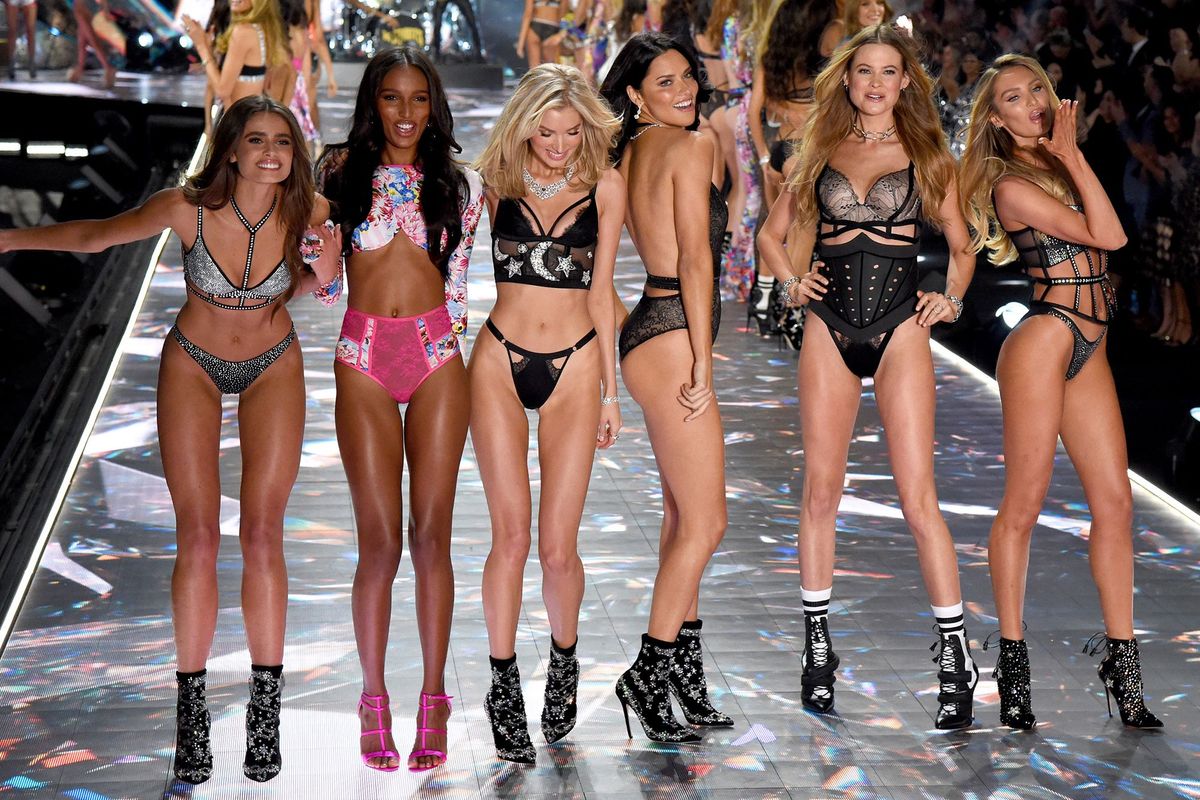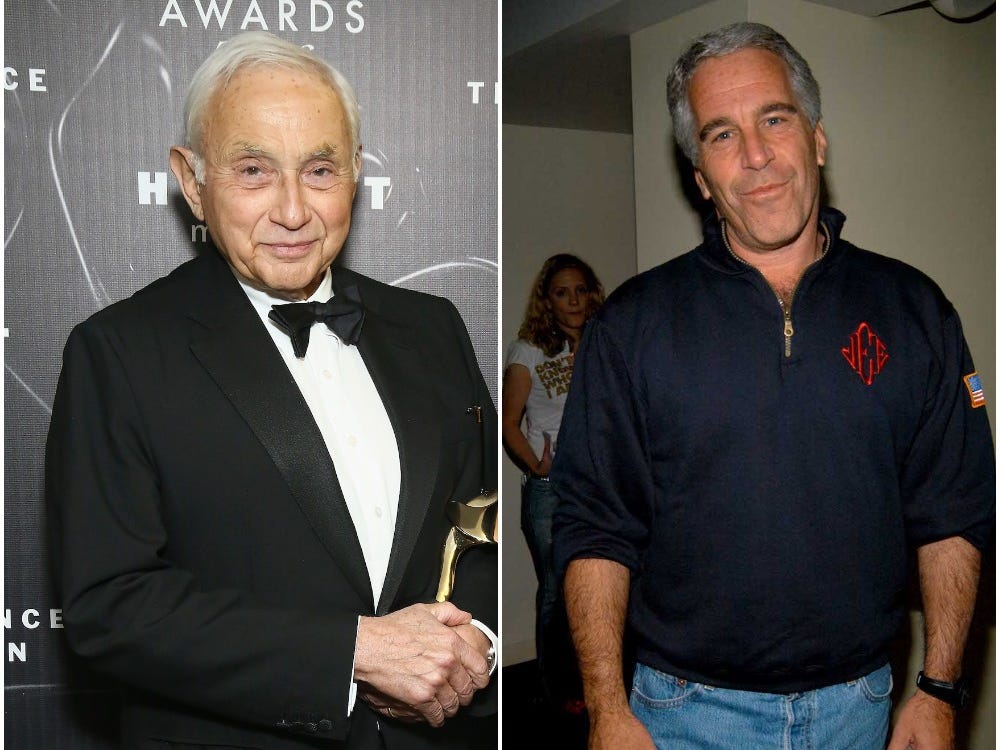Victoria’s Secret: the former retail powerhouse continues its downward spiral

A few minutes every morning is all you need.
Stay up to date on the world's Headlines and Human Stories. It's fun, it's factual, it's fluff-free.
Since the late 1990s, Victoria’s Secret has played a major role in defining what is sexy through its catalog and annual runway shows, granting the company global status and making it the biggest lingerie retailer in the United States with over 1,000 stores across the country.
Victoria’s Secret also has an elite group of contracted supermodels, known as “Angels,” who helped solidify the brand’s image of beauty and sexiness. These models are some of the most well-known in the world and landing a contract with the company has helped launch Tyra Banks, Heidi Klum, Gisele Bündchen and others to international stardom.
However, the lingerie powerhouse’s grip on the market has started to slip in recent years. As society’s views on beauty have shifted, the company has struggled to keep pace and stay relevant, causing sales to drop and forcing the company to close stores across the country.
In February, fashion retailer L Brands, which owns Victoria’s Secret, agreed to a US$525 million sale of a 55% controlling stake in the lingerie brand to Sycamore, a US private equity firm, valuing the lingerie brand at US$1.1 billion.
This represents a sharp decline in the value of Victoria’s Secret, which at its height recorded sales of US$7.7 billion – more than half of L Brands’ revenue.
However, Sycamore’s acquisition of Victoria’s Secret is under threat after the equity firm announced that it would be backing out of the deal.
Sycamore said that Victoria’s Secret had breached the terms of the deal by deciding to close stores in response to the COVID-19 outbreak, a decision that Sycamore claims was made without its permission.
L Brands filed a complaint against Sycamore and argued that the agreement was still valid as it had been transparent with Sycamore about what measures it would be taking to protect the Victoria’s Secret business.
Cementing its brand image in the late 1990s
Victoria’s Secret was founded in 1977 by American businessman Roy Raymond. Raymond was inspired to create a comfortable place for men to shop for lingerie after feeling awkward buying his wife lingerie in a department store.
In 1982, Victoria’s Secret, which at the time had six stores, and its catalog were bought for US$1 million by Leslie Wexner, who founded L Brands (formerly Limited Brands). Under Wexner’s leadership the company grew to become the largest lingerie retailer in the US, with 350 stores nationwide and sales topping US$1 billion.
In 1995 the company took further steps to cement its brand image when it launched the very first of its annual Victoria’s Secret fashion shows, which initially featured models wearing simple lingerie.
The show, which was run by L Brands’ chief marketing officer, Ed Razek, became a global phenomenon and an iconic part of the brand’s image.
In 1998 Victoria’s Secret models, including Tyra Banks, walked the runway wearing angel wings after a 1997 commercial for the brand’s “Angels” collection. The angel wings became a unique feature of every year’s fashion show collection and the term “Angel” became synonymous with the brand.
As years went by, the shows became more lavish events that featured performances from A-list artists like Taylor Swift, Justin Timberlake, The Weeknd and Katy Perry.
A change in fashion trends and societal norms hurts Victoria’s Secret
Victoria’s Secret fashion shows were first broadcast on the internet in 1999 and 2000. In 2001 the Victoria’s Secret fashion show was first aired on ABC, drawing over 12 million viewers. The show was subsequently broadcast on network television every year afterwards, with the exception of 2004.
Last year’s event was canceled due to declining viewership, with 3.3 million people tuning in for 2018’s show, a drop from 2017’s 5 million viewers and 2016’s 6.7 million viewers.
Declining interest in the shows was reflective of lagging interest in the brand.
Since 2015 the company has struggled to adapt to a change in consumers’ mindsets brought about by lingerie’s new feminist era and the #MeToo movement.
Victoria’s Secret was also slow to adjust to a change in fashion trends that prioritized comfort, with the rise in popularity of bralettes and sports bras as opposed to padded and push-up bras.
The brand’s racy and provocative ads were criticized for being overly sexualized, with critics claiming the ads objectified women. The company was also criticized for trying to maintain unrealistic beauty standards and not doing enough to embrace a wider range of body types.
In March 2019, activist shareholder Barington Capital sent a letter to L Brands’ Wexner, pointing out that Victoria’s Secret had failed to evolve with the times and as a result was “losing touch with its customers.” The letter, which was signed by Barington Capital’s CEO, James A. Mitarotonda, said that while the company had improved its racial and ethnic diversity in advertising campaigns it continued to “use models that depict a very narrow definition of beauty.”
While the company was focused on portraying supermodels as sexy, body positivity and body inclusivity became more popular, and body positive brands such as American Eagle’s Aerie and startups like ThirdLove, True and Co and Lively began to grow rapidly by featuring models of a variety of body types, sizes, ages and ethnicities.
Savage X Fenty, owned by musician and businesswoman Rihanna, has featured plus-size models and has offered a variety of nude shades for its lingerie since its inception in 2018.
Victoria’s Secret faced further criticism in 2018 after Ed Razek said in an interview with Vogue that he didn’t think the company’s fashion shows should feature transgender models because the show is a “fantasy.”
Razek later apologized for his comments and left the company days after it hired Valentina Sampaio, its first openly transgender model, for its teen-centric Pink line.

In early February, over 100 models signed an open letter to Victoria’s Secret CEO John Mehas, urging him to take concrete action to address abuse at the company, which garnered national attention following a New York Times report of a culture of misogyny, bullying and harassment at Victoria’s Secret.
The Time’s report alleges multiple cases of inappropriate conduct by Ed Razek, such as trying to kiss models and asking them to sit on his lap. The report also alleges that Razek touched a model’s crotch ahead of the 2018 Victoria’s Secret fashion show and claims that models who complained faced retaliation, such as not being hired for the fashion show.
While the company did not dispute any of the allegations, Tammy Roberts Myers, a spokeswoman for L Brands, said, “We regret any instance where we did not achieve this objective and are fully committed to continuous improvement and complete accountability.”
Razek responded to the allegations as “categorically untrue, misconstrued or taken out of context.”
Leslie Wexner’s ties to Jeffrey Epstein

In 2019, L Brands’ Wexner was under scrutiny for ties to the late US financier and convicted sex offender Jeffrey Epstein. Wexner had employed Epstein as a financial advisor for several years, though Wexner claims they cut ties in 2007.
While working for Wexner, Epstein had lied to aspiring models about being a recruiter for Victoria’s Secret and invited women for auditions. In at least two instances this resulted in Epstein assaulting them.
After Epstein’s arrest, Wexner said that he was “embarrassed” by his friendship with Epstein. “At some point in your life, we are all betrayed by friends,” Wexner said. “Being taken advantage of by someone who was so sick, so cunning, so depraved, is something that I’m embarrassed I was even close to. But that is in the past.”
[article_ad]
Have a tip or story? Get in touch with our reporters here!
Sign up for daily news briefs from The Millennial Source here!




Comments ()